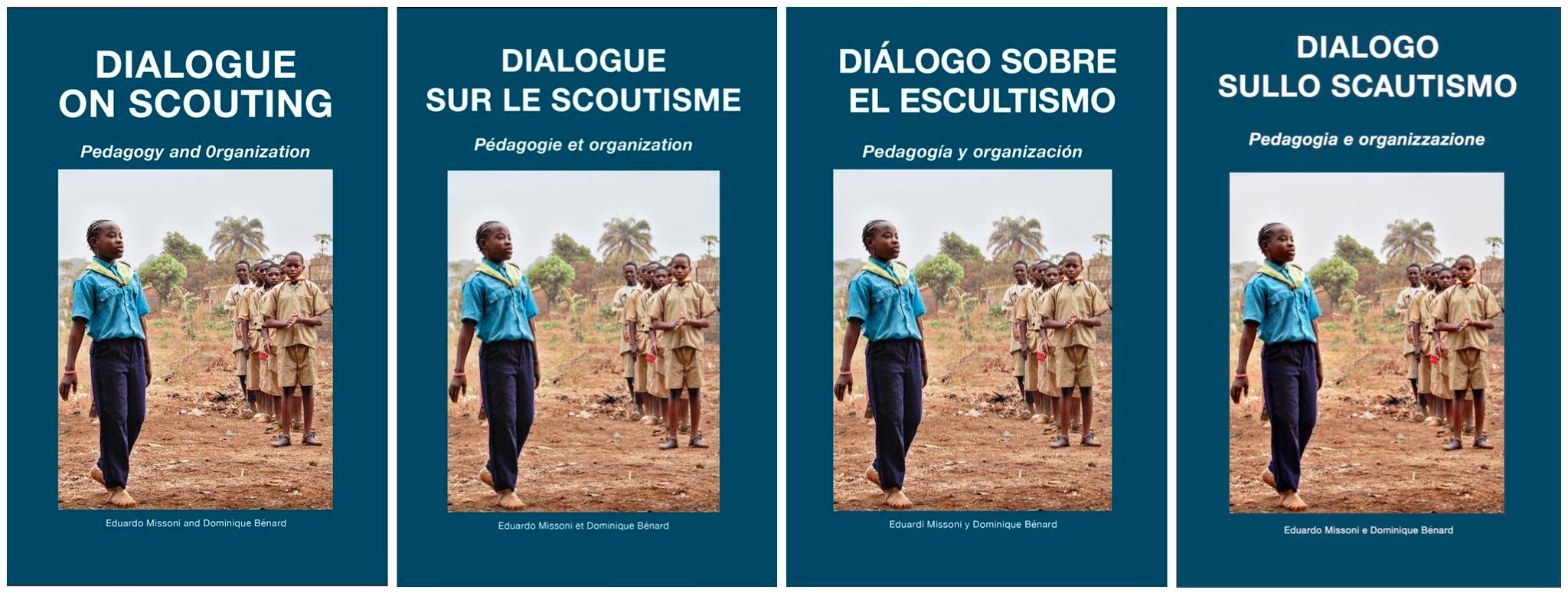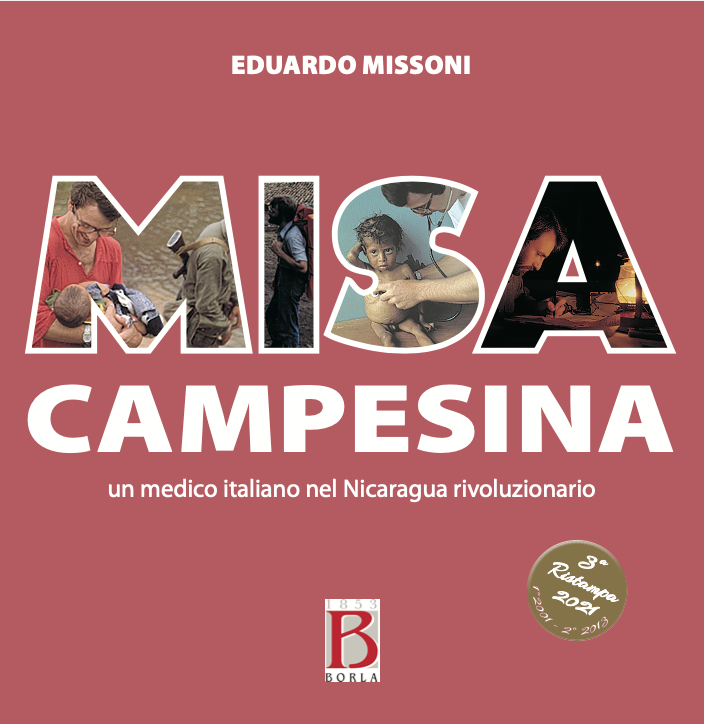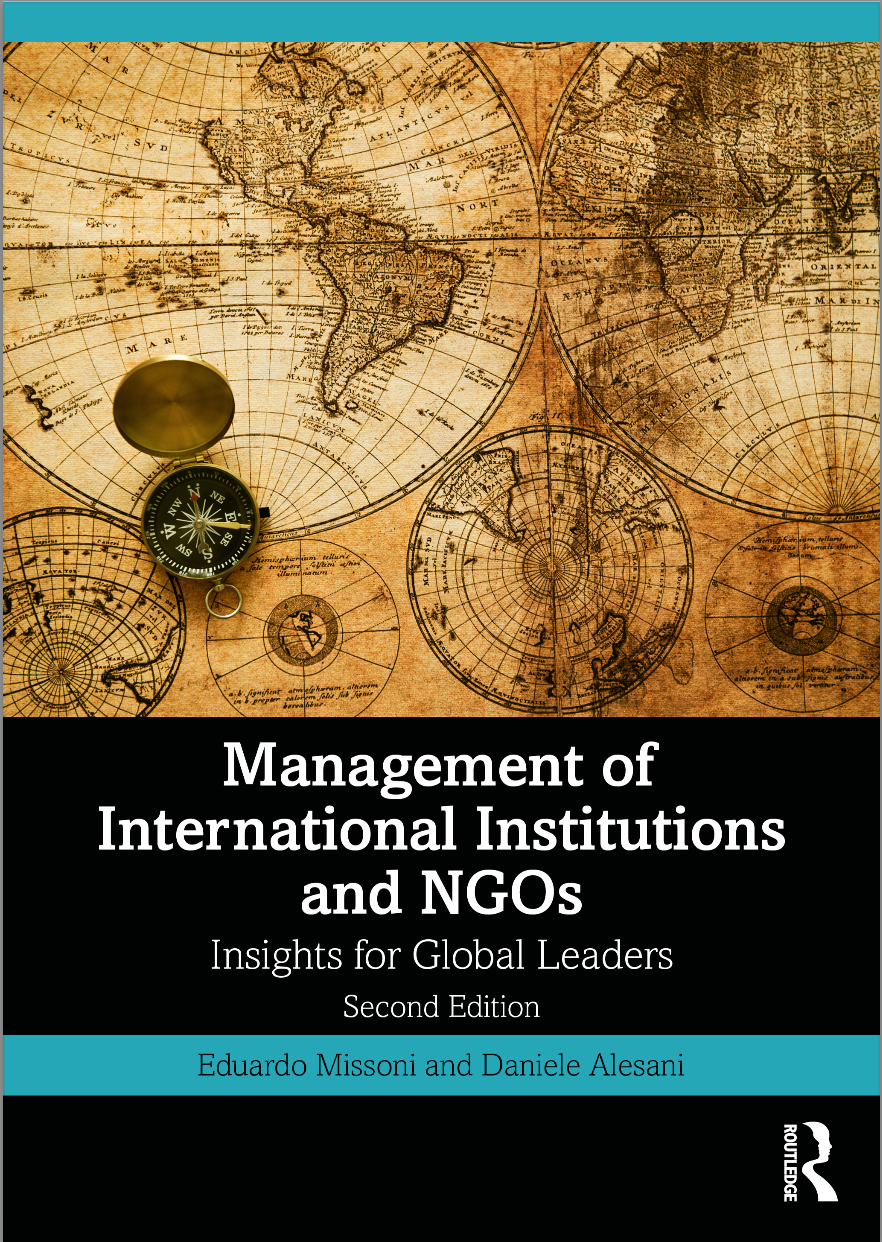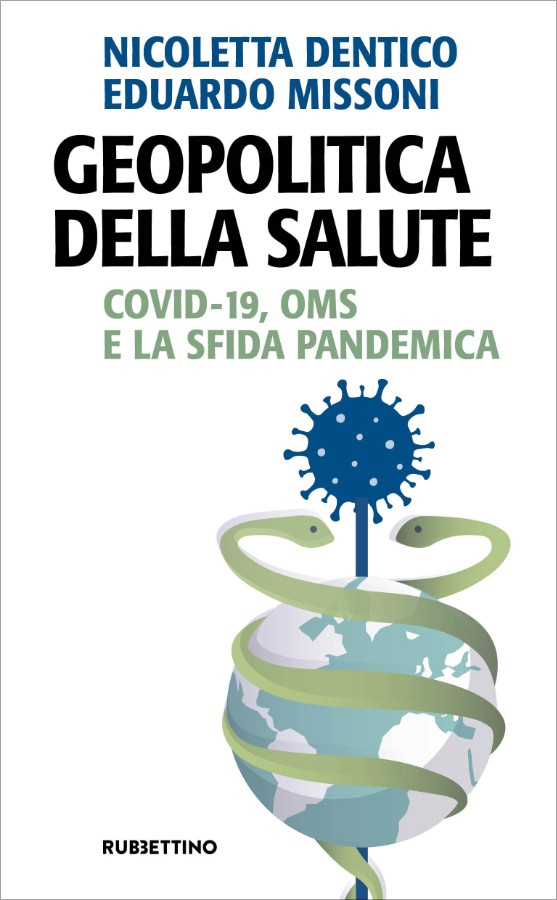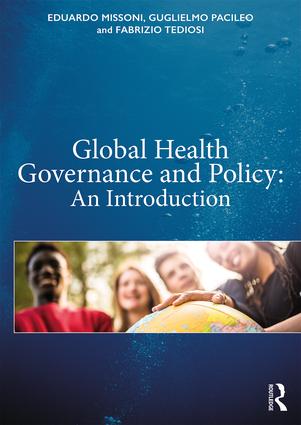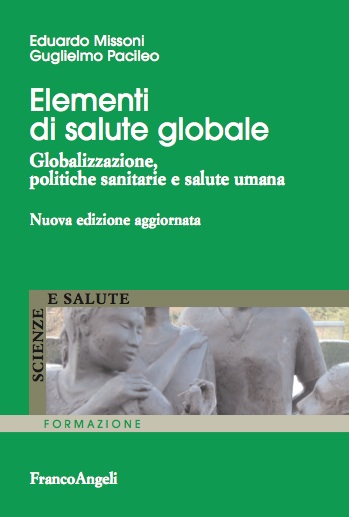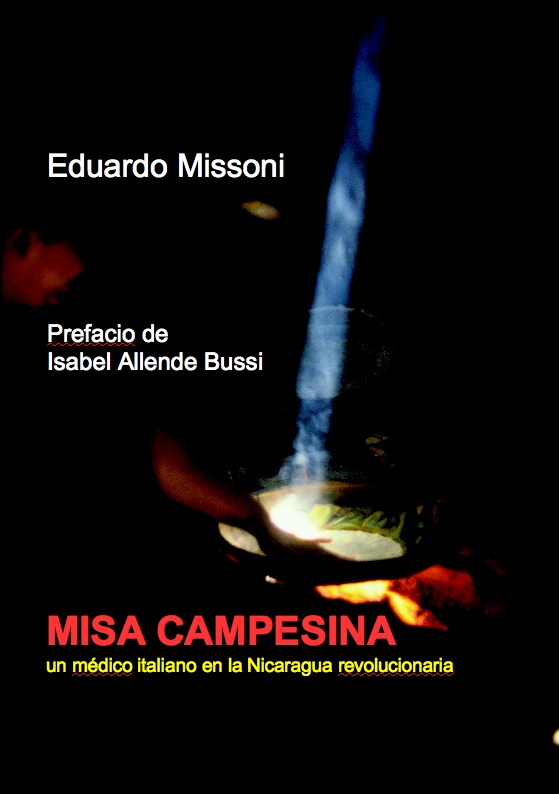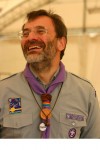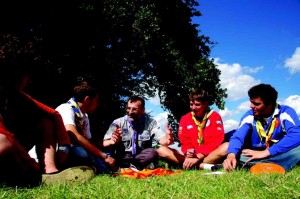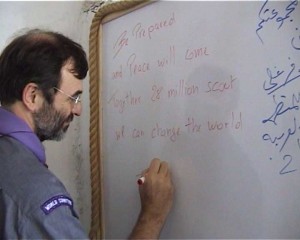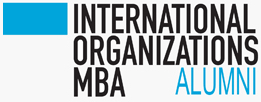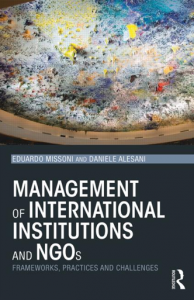 Daniele Alesani and Eduardo Missoni, authors of ‘Management of International Institutions and NGOs: Frameworks, practices and challenges‘, answer some questions about their book, the ‘one-stop-shop’ for readers looking to unravel the complexities of managing modern international organizations.
Daniele Alesani and Eduardo Missoni, authors of ‘Management of International Institutions and NGOs: Frameworks, practices and challenges‘, answer some questions about their book, the ‘one-stop-shop’ for readers looking to unravel the complexities of managing modern international organizations.
1. Congratulations on the publication of your book! What led you to writing it?
Along our entire careers we have worked with international organizations as professionals, consultants and trainers. We have seen these organizations face significant challenges, change and respond to the growing complexity of the international cooperation sector and to the demands of donors to ‘do more with less’. We witness international organizations strive to become more efficient, effective and to better fulfill their mandate. Notwithstanding the large body of institutional knowledge and professional documentation on the modernization of international organizations, literature has largely neglected investigating them under a managerial perspective. With this book we aimed to offer an initial response to questions such as ‘what is and why do we need management’ in international organizations and ‘what are international organizations doing to become more efficient and effective’. Although public and NGO management has been around for a long time, we were determined to identify and explain the main features of a ‘tailored’ approach to International Institutions (IIs) and international non-governmental organizations (INGOs), based on their institutional and operational specificities, and do so with a practical, hands-on approach.
2. Can you describe your book in one sentence?
This book is a one-stop-shop to unravel the complexities of managing modern international organizations; a must-have for anyone interested in making an impact in these organizations.
3. Can you elaborate on why you think this book is original and unique?
We brought together and analysed IIs and INGOs as organizations. International literature extensively explored them, but rarely, if ever, took an interest in them as independent and complex organizations and actors of the evolving international cooperation sector.
We did not flatly adopt any existing theoretical framework or theory, such as New Public Management, very ‘fashionable’ in literature both by believers and critics. Rather we explored a ‘tailored’ approach to management for IIs and INGOs based on their operational and institutional specificities. We did so by looking at the practices of real organizations, their challenges and successes.
We wanted to be the first to explain the international cooperation sector as a ‘market’ where actors compete and collaborate with their visions and strategies, try to win over vital resources to survive and grow and need to maximize the use of their financial and material resources to fulfill their mandates. We wanted to do so without under-estimating the inherently political nature of these organizations but giving proper identity to their managerial component.
We also had in mind the social entrepreneurs and founders of INGOs who are passionate and genius in what they do for their causes but often lack exposure to management frameworks, systems and practices. We wanted to provide them with the first practical and hands-on guide to improve the resource management of their organizations, build their profile, better understand their positioning within the international aid system. We wanted to give them a tool to benchmark themselves against best practices and find solutions to common management problems.
4. Who would be interested in reading your book?
We intentionally targeted a broad audience of students of international management, public administration and policy programs; policy makers and practitioners working for IIs and INGOs.
On the one hand, students will appreciate the comprehensive categorisation and analysis of the main actors of international cooperation and will acquire a well-rounded knowledge of this sector. Students with previous knowledge of business and public management will explore advanced themes related to the current practices and specific challenges of IIs and INGOs. Students interested in these organizations and without previous exposure to management will effectively run through the ‘building blocks’ of this field and concentrate on the specific managerial challenges faced by international organizations.
On the other hand, practitioners and managers working for international organizations will have the opportunity to strengthen their knowledge of the management theories and frameworks behind their daily job; they will gain practical knowledge highly transferrable to their organizations and they could benchmark their experiences and practices against detailed case studies. In particular, this book will be tremendously useful to social entrepreneurs, NGO funders and practitioners to quickly acquire hands-on knowledge on how to improve their organizations.
5. Are there any relevant world issues that your book relates to at the moment?
In the last decade, the international community started questioning the consolidated role and model of intervention of international organizations, pressing them to evolve, innovate, change, break the chain of dependence created by traditional international cooperation initiatives and create virtuous circles of self-reliance and growth.
At the same time, the years following the global financial meltdown have seen a dramatic increase in the expectations of member states and donors and the search for the best ‘Value for Money’ became a priority for international cooperation.
Mismanagement and ethical scandals such as Oil for Food repeatedly tainted the reputation of international organizations and called for greater transparency, better governance and management.
This book explores how international organizations are reacting to these trends. Organizations are doing so by developing their business model and partnership attitude, by building identifiable brands and profiles, and by implementing managerial reforms aimed to strengthen results orientation and accountability and to reshape decision making mechanisms, improve human and financial resource management. This book documents the successes, challenges and open issues of modern international organizations striving to modernize and become more efficient, effective and impactful.
4. Do you have plans for future books? What’s next in the pipeline for you?
Writing this book took several years of research, observation of organizations’ practices, and discussion with practitioners. This book is a first stepping stone for us; we intend to widely present it around the world to gather the reactions of academics and managers and the always interesting questions of students and practitioners. We look further to use it as platform to develop further research and continue exploring the burning questions on the management of international organizations.
Read the first section of this book now! Simply follow this link and click on the blue ‘View Inside this Book’ button on the book’s product page to read online.
